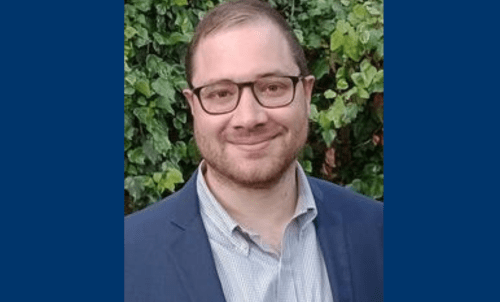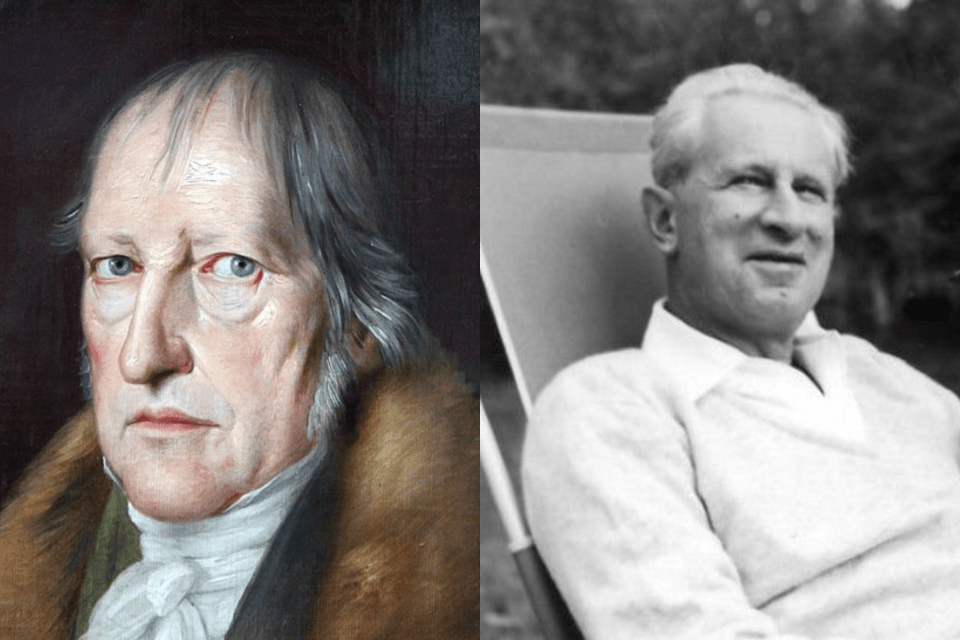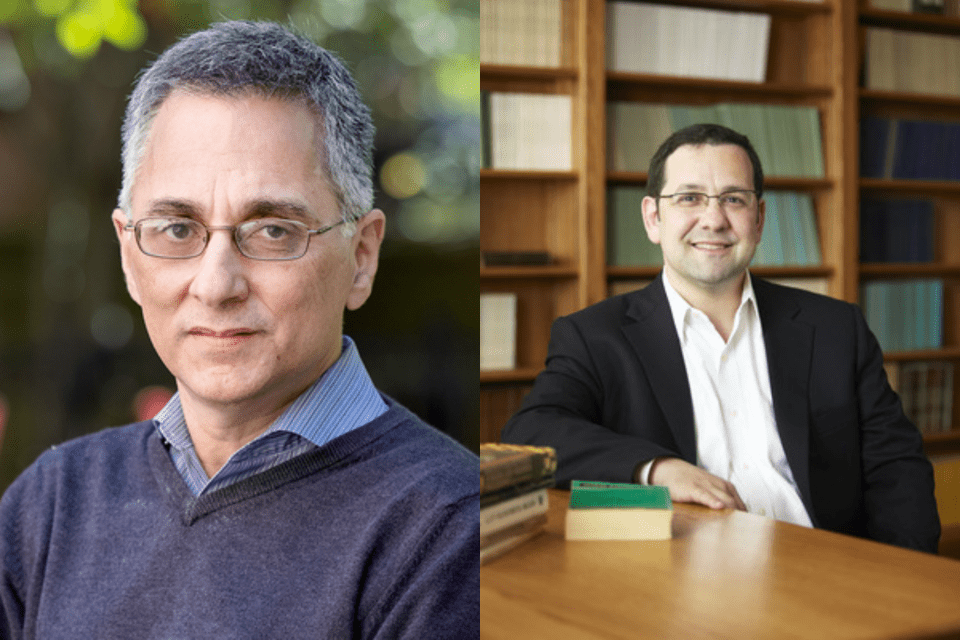Meet the FAS faculty: Jacob McNulty
Yale’s Jacob McNulty — a scholar of Hegel, Marcuse, and other European philosophers — explores subjects such as the nature of reality and rational thought, what drives history and politics, and the metaphysical underpinnings of human interaction.

To nominate an FAS faculty member to be featured in this series, please email fas.dean@yale.edu
Jacob McNulty is one of philosophy’s biggest advocates. Always in the pursuit of enlightenment, he continues to apply ancient concepts into a contemporary context, both inside and outside of academia.
McNulty is Assistant Professor of Philosophy in Yale’s Faculty of Arts and Sciences. He joined Yale in January 2024, but before Yale, McNulty was a lecturer at University College London and received his PhD in Philosophy from Columbia University in 2019.
McNulty’s interest in philosophy began during high school as a method of learning history and politics. It was the “larger thematic questions” of life, such as societal trends and human nature, that drove his interest in these subjects rather than minute “factual details.” Philosophy allowed McNulty to engage these questions thoughtfully and critically and gave him new insight into his studies.
“The first philosophers I happened to discover, asked questions like these [thematic questions], so my initial impression of philosophy as a field was that it posed the most abstract, but also the most fundamental questions in history and politics.”
McNulty would later discover that not all philosophy centered on history and politics, and as he explored the field further, he understood that the breadth of philosophy extended across a range of fields and disciplines: it is a multifaceted medium that can be used in any field.
“For any x [subject], you could name there’s philosophy of x,” he said.
Now, McNulty has found his specialty in post-Kantian and continental philosophy, with a particular interest in 19th century philosophers Georg Wilhelm Friedrich Hegel and Karl Marx.

Geog Wilhelm Friedrich and Hegel Marcuse (Jacob Schlesinger/Wikimedia Commons; Harold Marcuse/Wikimedia Commons)
His first book, Hegel’s Logic and Metaphysics, made its debut in January 2023 from Cambridge University Press. In it, McNulty examines Hegel’s philosophical positions such as the connection between the fundamental nature of reality and rational thought, and Hegel’s relationship to Kant’s theory of transcendental idealism.
Now, McNulty is currently working on his second book which details the life of Herbert Marcuse and the Frankfurt School of Critical Theory, which was an institution that housed an influential group of German intellectuals who challenged mainstream 20th century culture. Marcuse was a prominent figure in the 1920s German sociologist movement and in the 1960s leftist student movement in the United States. He wrote on various issues including Hegel, existentialism, phenomenology, technology, and psychoanalysis. McNulty’s goal with the book is to spark further interest and discussion about Marcuse.
“He’s often eclipsed by others in the Frankfurt School who are perceived as more serious philosophically because he was this popular figure,” McNulty said. “He was somebody that you could occasionally see on TV or in the newspapers, so there’s suspicion that he’s not a serious thinker, but I disagree with that.”
For McNulty, the crux of selecting an academic research topic involves choosing a subject he is innately passionate about and can discuss with other experts in the field. “The part of academic research and philosophy that I don’t find difficult at all is reading. I am always reading, and I often pick projects based on what I want to be reading and studying,” he said. “Writing is more difficult. When writing goes well, for me, it is as an outcome of my conversations with other people about what I am reading.”

Yale philosophy professors Michael Della Rocca and Paul Franks
Now, McNulty gets to contribute to this area at Yale alongside renowned theorists like Michael Della Rocca, Sterling Professor of Philosophy, Paul Franks, Robert F. and Patricia Weis Professor of Philosophy and Jewish Studies, and Stephen Darwall, Andrew Downey Orrick Prof of Philosophy, whose writings he has continually read and engaged with throughout his academic career.
“Some friends and I had a reading group on Paul Frank’s book All or Nothing, so it’s a tremendous opportunity for me to now be his colleague and learn from him,” he said.
McNulty has also taken great inspiration from his junior colleagues such as Assistant Professors of Philosophy Robin Dembroff and Lily Hu.
“My junior colleagues are people that I already look up to,” he said. “These are all people I admire tremendously, people I hope to learn from — I am honored to have [them] as colleagues.”
At Yale, McNulty hopes to pursue a third project about “mutual recognition” in 19th-century philosophy.
“‘Mutual recognition,’ as I understand the term, describes the attitudes human beings [have] towards one another when they explicitly regard one another as human beings and not as mere things or non-human animals,” McNulty said.
While he is unsure whether the project will focus on Marx or 20th century French philosopher Jean-Paul Sartre, there’s one thing he’s not questioning: making Yale and New Haven his new home.
“Post-Kantian and continental philosophy are traditions that have interested me ever since I started in philosophy. My goal in life, even independently of my teaching and research, is to know as much about this tradition as I can. Hopefully, I can then impart that knowledge to others.”